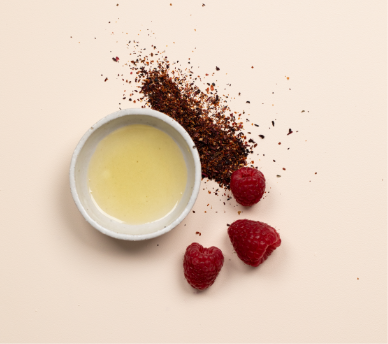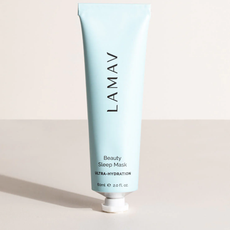All You Need To Know About Sulfates
The increasing popularity of natural and organic skin care led to the appearance of a lot of controversial claims regarding the safety of compounds, widely used in the formulation of personal care products. Many of us get super confused, on a daily basis, because the opinions we stumble upon on the internet, are often opposite to one another. While some sources tell us that compound X is very dangerous for our health, others claim it is perfectly safe for use. Confusing, isn’t it?
As organic advocates, our primary mission is (and always will be) to help our customer make informed choices. Since sulfates are one the most discussed group of cosmetic compounds on the internet and their safety is questionable, we’ve decided to separate truth from myths and tell you why you should to avoid them. Do they cause cancer? Do they provoke allergies? Do they speed up aging? Read on, and you’ll find out!
What Are Sulfates?
Sulfates are used in personal care product as surfactants, emulsifies, cleansing and foaming agents. They appear in the ingredient lists of tooth pastes, shampoos, soaps, facial cleansers, shower gels, laundry detergents, bath salts, bleaching agents, hair color… basically, almost everywhere. The most popular ones include Sodium Lauryl Sulfate (SLS), Sodium Laureth Sulfate (SLES), Ammonium Laurel Sulfate (ALS) and two more that are not used so often – Sodium Myreth Sulfate and Triethanolamine Laureth Sulfate.
The primary reason why companies choose to use sulfates is because they
break down lipids with ease and produce rich lather, which gives the user the
sensation of deep cleansing. Another reason, as many of you can guess, is that sulfates are pretty cheap.
Note: Even though sulfates are derived from coconut or palm oil they are neither natural nor organic! Keep that in mind!
Do Sulfates Trigger Allergies?
Like any other compound, sulfates can cause allergic reactions in individuals that are sensitive. That being said, I’d like to mention that even natural and organic ingredient can provoke allergic response in some people. If you have
hyper-active immune system (which is what allergies are) virtually anything can
trigger a negative response in your body.
Nevertheless, the problem with sulfates is a bit deeper. Since they possess the ability to break down lipids, their frequent use can damage the natural lipid barrier of the skin that serves protective function. Once this barrier is disrupted more allergy-causing substances enter in our body, which increases the chance of getting allergic reaction. Apart from that, when the integrity of the lipid barrier is disrupted, our skin gets irritated most often and rashes, redness and inflammations are more likely to appear.
Despite the claims on the labels of sulfate-containing products (like “gentle formula”, “no tears”, “delicate cleansing”) sulfates are known irritants (not only in babies) and there is more than one study supporting that.
If you are indeed looking for a cleanser that is gentle, wouldn’t dehydrate or irritate your skin, we might have what you are looking for…

LAMAV’s Hydra Calm Cleansing Cream is designed for dry, sensitive skin to wash away impurities, perspiration and pollutants, deeply hydrating and conditioning the skin.
Formulated with Bio-Flavonoids, Jojoba Oil and Shea Butter it moisturizes and cleanses the skin to reveal a clear, bright, smooth surface.
Do Sulfates Cause Premature Aging?
Sulfates dehydrate the skin, strip it off its natural oils and break the proteins that keep it elastic and firm, which inevitably increases the risk of your skin aging prematurely. As we’ve mentioned in previous articles, the key to healthy, youthful skin is keeping it hydrated and nourished. And, trust me – sulfates are not the best compound to put on your skin if you want nourishment and hydration…
Are Sulfates Bad For Your Hair?
Sulfate-free shampoos became a huge thing in the past 5 years, primarily because of all the fuss around the safety of SLS and SLES. But are they really bad for your hair?
While sulfates are really good at cleansing, they are also very good at breaking
lipids and proteins and irritating the skin. These three “great qualities” of
sulfates make them ideal if you want to be a proud owner of brittle hair, irritated
scalp and hyper-active sebaceous glands. If you are wondering why your scalp is constantly itchy and why your hair get greasy one day after you’ve washed it,
read the label of your shampoo – the culprit might be hiding there.
When sulfates dissolve the natural lipids that lubricate and protect your scalp,
your sebaceous glands try to compensate, by producing more sebum, which always leads to not-very-clean-looking-roots shortly after taking a shower. Apart from that, sulfates dehydrate the hair strands and make your tresses look frizzy, dull and lifeless. Definitely not sexy.
In spite of
everything I’ve mentioned above, I’d like to say that all of this is very
personal. There are individuals who tolerate daily use sulfates very well and
do not experience any side effects. If you are not one of those people though,
it’s time to ditch SLS out of your bathroom. Just do it.
Do Sulfates Really Harm Your Health?
To begin with – no, sulfates do not cause cancer. There is no scientific proof that sulfates are carcinogenic. Still, many people are concerned that during the
process of synthesis of sulfates they can be contaminated with 1,4 dioxane (carcinogen). Even though this is true, I really want to believe
that manufacturers are conscious and they pick carefully the companies they purchase compounds from… My hopes though will not serve much when it comes to safety, so I’ll leave this one to you – you decide whether it is worth taking risks.
Some sources also suggest that frequent exposure to sulfates can cause hormonal imbalance, neurotoxicity and reproductive toxicity, because sulfates tend to accumulate and leave residues in some organs in our bodies. While the scientific data here is limited and quite controversial, once again, I’ll say that I’d prefer to be safe. After all, I don’t think I am going to lose a lot, by getting rid of
products that may harm my body. What would you lose?










